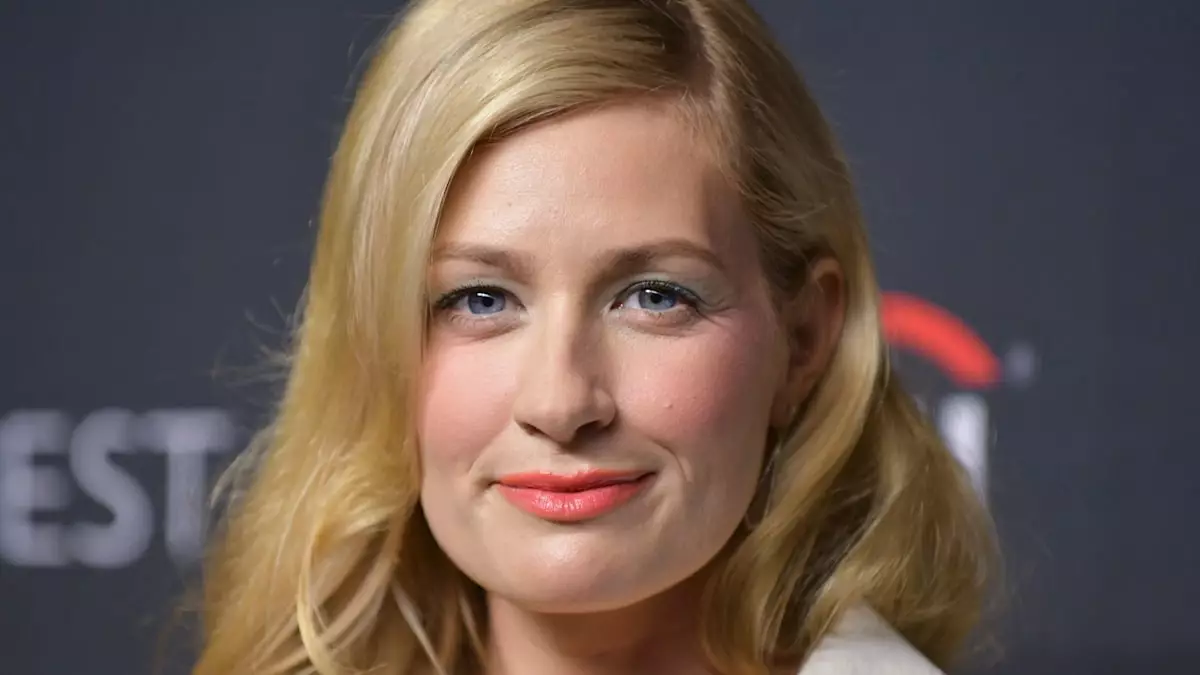Beth Behrs, acclaimed for her role in the beloved sitcom *2 Broke Girls*, has recently sparked a crucial conversation about women’s health by openly sharing her personal experiences with perimenopause at the relatively young age of 38. Unlike the foreboding silence that often cloaks discussions about menopause, Behrs has bravely stepped forward, highlighting the genuine struggles many women face. Her candid narrative is not just a reflection of her journey but a call to action for other women to advocate for their health amid societal misconceptions.
What makes Behrs’ story so significant is its relatability. Following the birth of her daughter with fellow actor Michael Gladis, she experienced symptoms that many would find alarming—hot flashes, insomnia, extreme fatigue, and heavy menstrual cycles. The emotional toll of such abrupt changes in bodily function created a profound sense of anxiety. Initially, her concerns fell on deaf ears when medical professionals dismissed them, reinforcing the societal belief that perimenopause is a condition reserved for older women. “You’re too young,” they said, underestimating her lived reality. Yet Behrs’ unwavering intuition urged her to seek deeper understanding, a testament to her resilience.
Isolation is a common sentiment among women experiencing perimenopause, particularly when symptoms deviate from the norm. Behrs poignantly shares that she had never fully comprehended the term “perimenopause,” mistakenly associating menopause solely with advanced age. It wasn’t until she exchanged insights with a costume designer on the set of *The Neighborhood*—who had shared her own experience of perimenopause at 36—that the intricate puzzle began to piece itself together. This moment encapsulates the importance of community and shared experiences; sometimes, it takes just one conversation to illuminate what has long been obscured.
Alongside her struggles with anxiety and sleep disturbances, Behrs’ fertility journey adds complexity to her narrative. After discovering her low ovarian reserve, she underwent fertility treatments to conceive her daughter. Little did she know that these treatments might also intertwine with the onset of perimenopause, a fact that underscores the need for more comprehensive research in women’s health. With limited information available, many women find themselves navigating a labyrinthine path with little guidance on how fertility issues can impact hormonal changes.
Fortunately, Behrs found a compassionate doctor who became a pivotal figure in her life. This revelation emphasizes an essential aspect often overlooked in health discussions—the impact of finding the right medical support. A physician who understands a patient’s unique situation can vastly change one’s experience with health issues. For Behrs, identifying the connection between her symptoms and perimenopause—while initially a source of distress—ultimately provided much-needed clarity and comfort. It is a reminder that receiving proper validation from healthcare providers is crucial, and it promotes the idea that women must not settle for inadequate responses to their health inquiries.
Her openness about this chapter of her life serves a greater purpose. Celebrity voices like Behrs’, Naomi Watts, and Halle Berry collectively contribute to destigmatizing conversations about perimenopause, highlighting that such challenges can arise earlier than expected. Symptoms often mistaken for other disorders—from mood swings to severe fatigue—need attention and understanding. Behrs’ narrative encourages women everywhere to advocate for themselves vigorously, continually seeking answers and clarification when faced with inexplicable health changes.
As Behrs nears her 40th birthday, she reflects not just on the challenges of perimenopause but on the empowerment that comes from accepting those challenges. In her quest for understanding, she has embraced her identity, finding control in her circumstances while also acknowledging the necessity of letting go. That balance—realizing you can own your experience while also yielding to the natural evolution of the body—demystifies the fear surrounding aging.
Her story, emblematic of the struggles faced by countless women, champions the pursuit of knowledge and the importance of community in overcoming isolation. By sharing her journey, Beth Behrs not only advocates for herself but also lights the path for others who may feel lost in their experiences. In a world where women frequently wrestle with their health in silence, her message is one of solidarity: we are not alone, and together we can forge a way forward.

